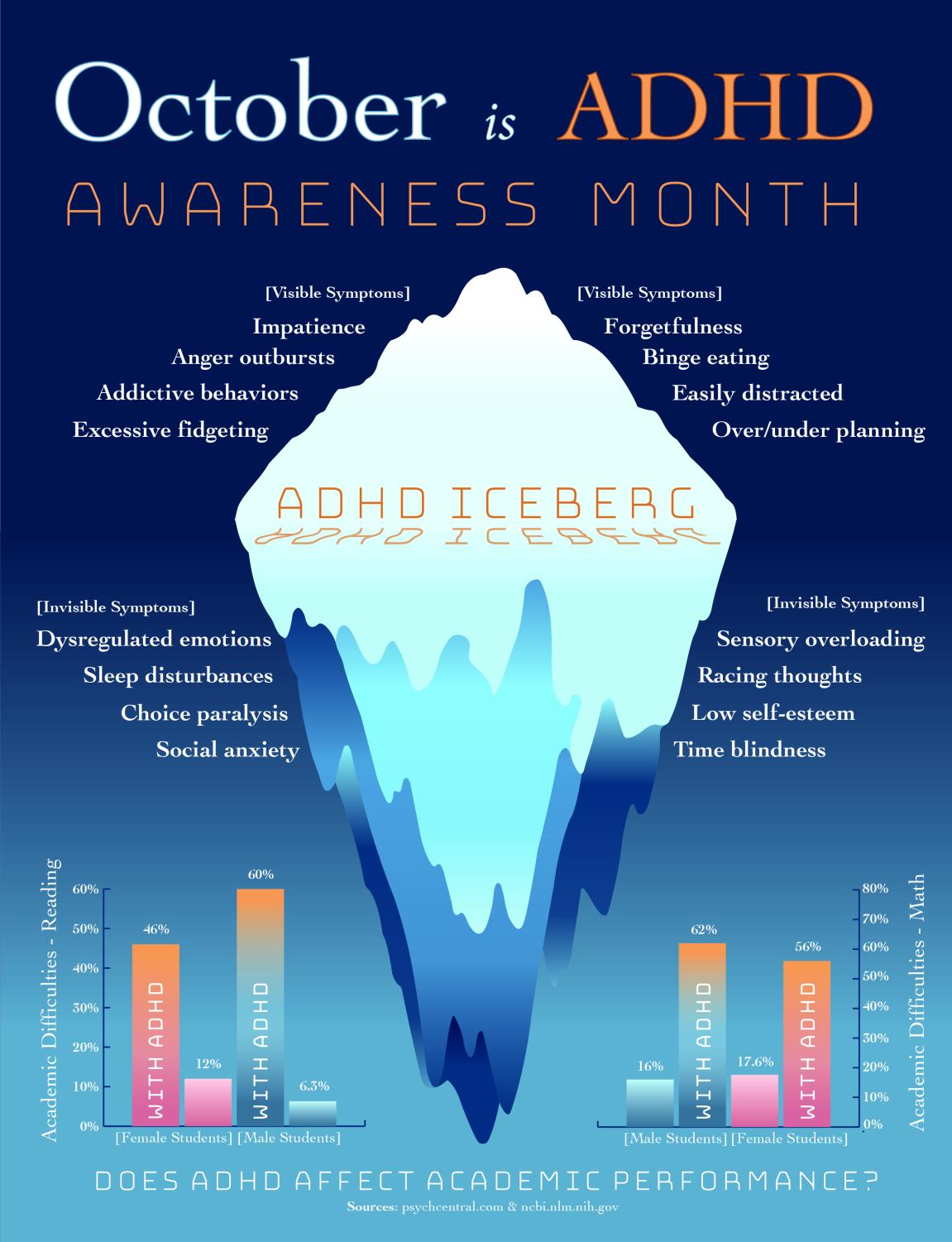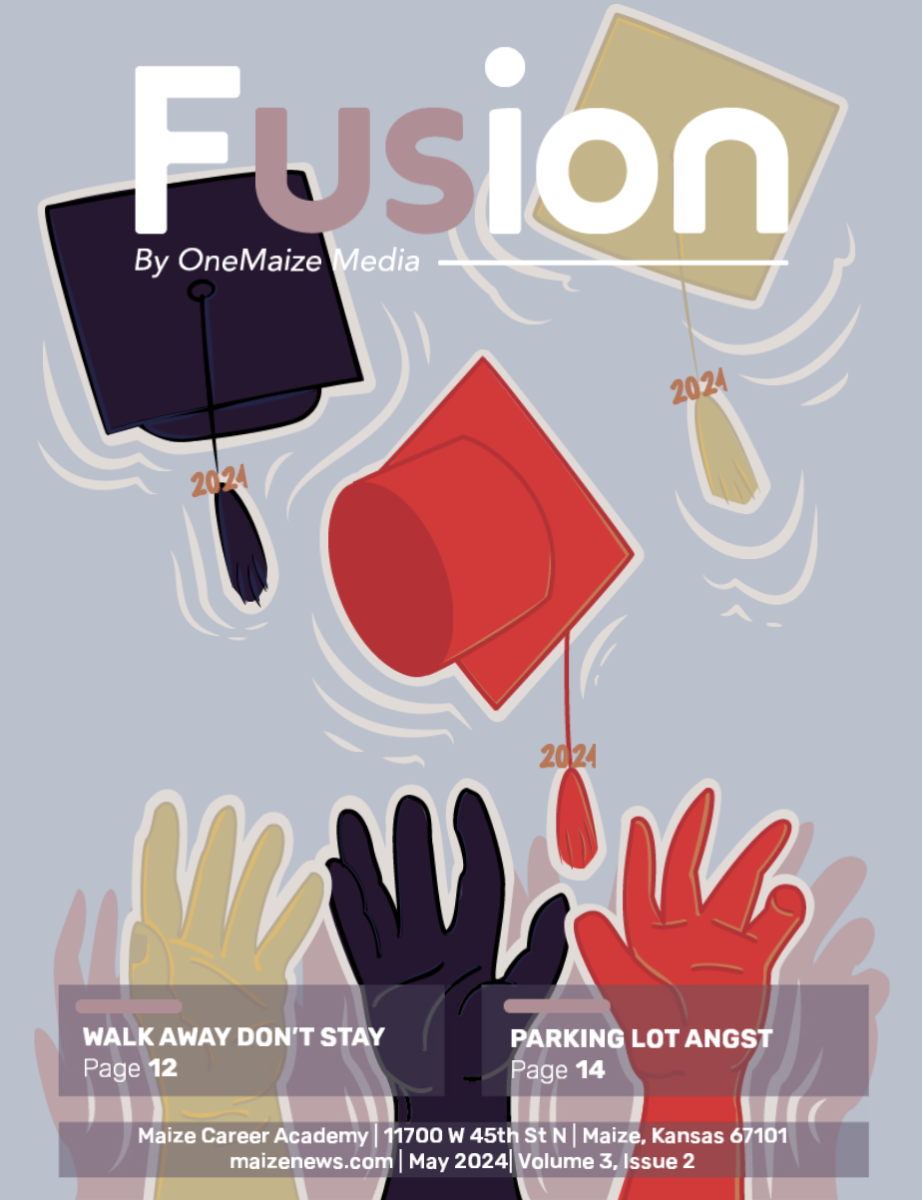Raising ADHD awareness
While many people look forward to October for the cool weather, Halloween decorations, and candy, not so many know that it is also ADHD awareness month. Learning about the disorder and the symptoms are just two important focuses of this national awareness month.
October 11, 2022

Have you ever been sitting in a class or a work meeting and found it absolutely impossible to stay focused? What about being unnecessarily angry about a small mistake and getting more upset than normal.
Do you struggle to sleep soundly at night or have excessive, relentless thoughts about things that aren’t even important to you?
All of these are common signs of attention-deficit/hyperactivity disorder, or ADHD. ADHD is most commonly diagnosed in children, according to psychiatrists, but can be diagnosed or present in adults as well.
To be diagnosed with ADHD, people must go to a mental health professional, whether it be a therapist, psychologist, or psychiatrist; they can also be diagnosed by a primary care provider, including a pediatrician for children. Self diagnosing of anything can be dangerous, especially if people try to self medicate. — Eloise Pankratz
There is no single test that tells for sure if someone has ADHD, which is why it is important to get professionally diagnosed and treated to help with some of the symptoms.
During testing, a professional will ask questions about the patient’s life to see how the different symptoms of ADHD are affecting them in their everyday lives. To be diagnosed, the issues must present themselves in more than one area of someone’s life and be detrimental across multiple situations each day.
Vanessa Carey, a senior at Maize South, recently got tested for ADHD at a psychiatric clinic. Carey decided it was a good choice to get professionally tested after noticing several symptoms in her daily life and wanting to learn what she could do to manage those.
“When I got tested they had my mom and I both fill out a form to see how I perceived myself and how other people perceive me,” Carey said.
There also must be a series of symptoms present to be diagnosed according to the DSM-5, which is a manual used by mental health professionals to diagnose mental health disorders. If only two or three of the issues are present in a patient’s life, it is unlikely ADHD is the issue and the treatment plan would have to be changed.
For example, this can come in the form of symptoms being clear at both school and home, or being present at work and at a social gathering. If it presents in more than one area, there is a higher chance it is ADHD. As adults, many have been taught to manage the symptoms or to work to ignore the symptoms rather than treat the symptoms. — Eloise Pankratz
“Many people with ADHD will say they feel like they have a motor running in their head that will not stop,” Eloise Pankratz, a clinical therapist, says. “This is a sign that they have ADHD. Many times, ADHD is combined with depression due to a person not being able to sort out their thoughts and not being able to focus and complete tasks at hand. This can be very frustrating and difficult, which can lead into depression”
The rate of prevalence and diagnosis of ADHD has “significantly increased” from 1997 to 2016 according to Children and Adults with Attention Deficit Disorder, with almost one in every ten children being affected.
Although there are multiple different factors that could contribute to the rise in ADHD in the population, many people believe it is due to the rising awareness people have for the disorder. Although awareness is targeted towards the teen audience, it is important for all ages to be aware of the symptoms, causes, and coping mechanisms of ADHD.
“I believe that we are just more aware of what is going on than we were in the past,” Pankratz said. “Raising awareness is important because we can teach people the coping skills they need to manage the symptoms.”






